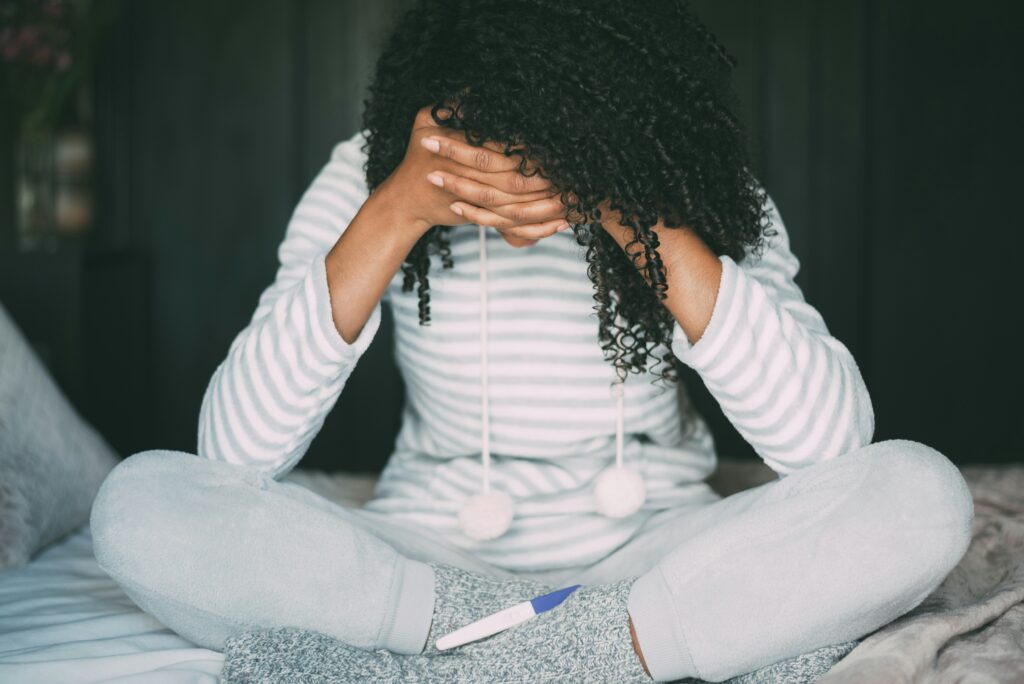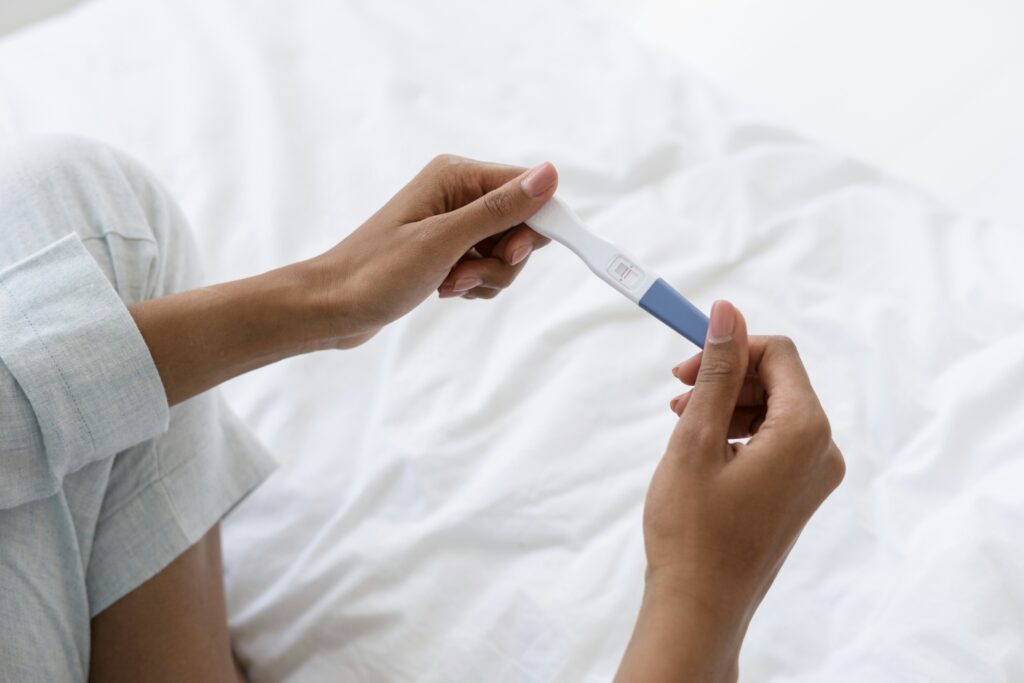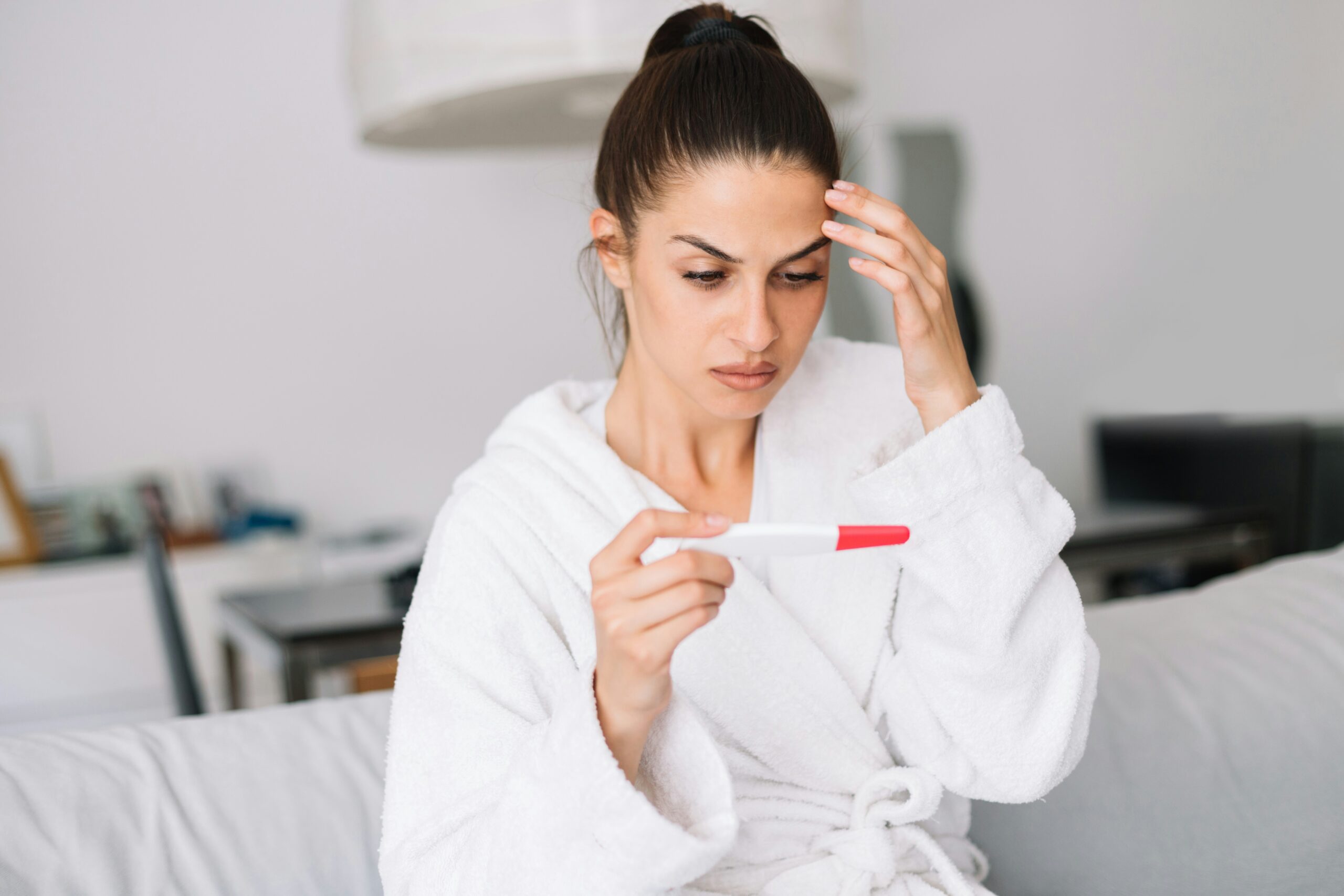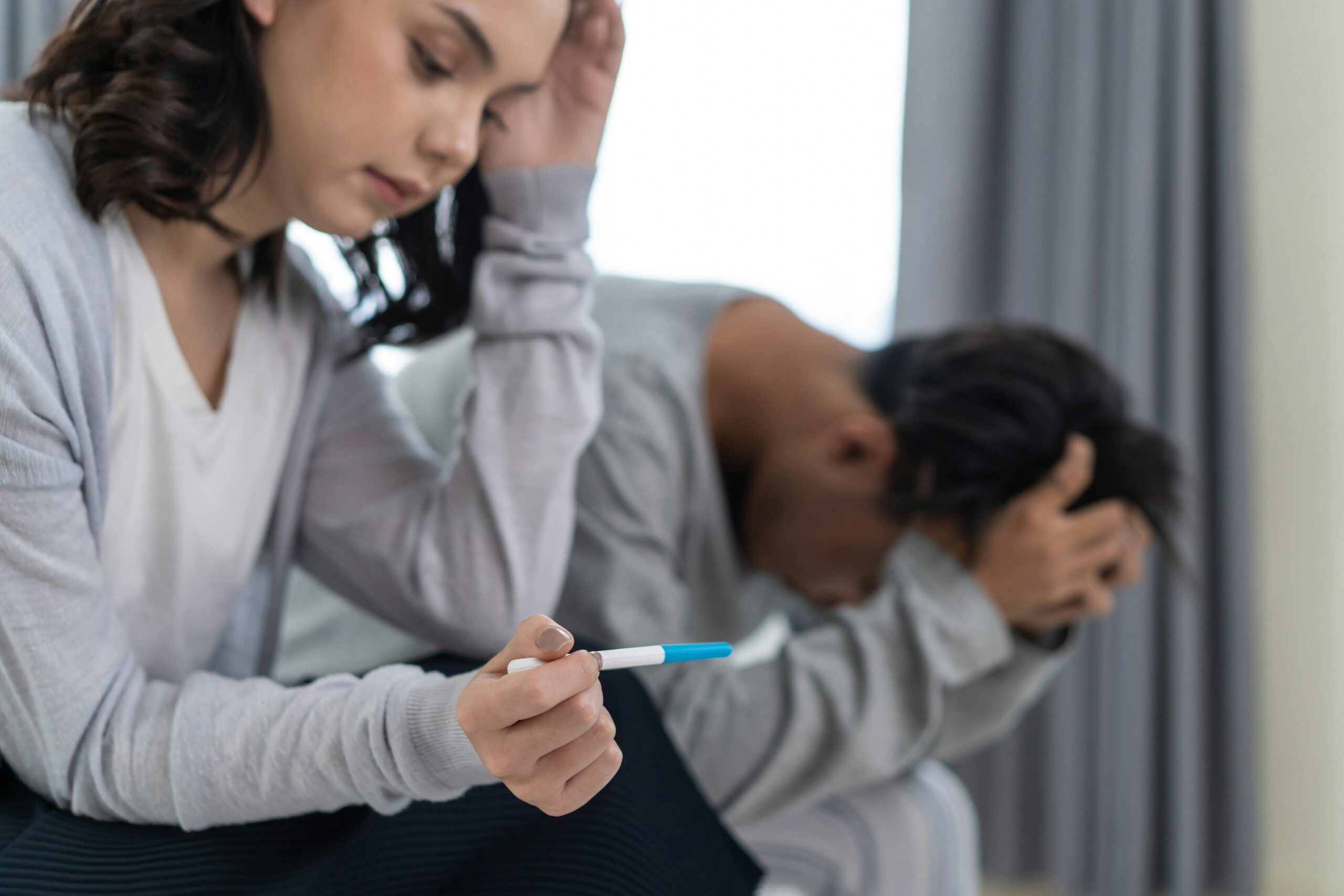We see you, in the middle of the night, unable to sleep, eager for an answer, Googling: ‘How soon after unprotected sex can I test for pregnancy?”
Until you’ve started your TTC journey, it probably seems a little strange that a little plastic stick can completely change someone’s life. Whether you’ve seen them in movies, your favorite influencer’s pregnancy announcements, been with your friends as you hold their hands and cross your fingers, or you might have taken them yourself—these tests can bring amazing news or they can be soul-crushing when the outcome isn’t what you hoped for.
A pregnancy test can determine whether you are pregnant by using a sample of your urine to test for a specific hormone, HCG. But here’s the thing: timing matters a lot. If you want to get pregnant, you can’t expect to take a test immediately after unprotected sex and expect a reliable and accurate result. So, if timing matters, what is the right time to test and know for sure?
We know the excitement behind pregnancy and the anticipation of taking a pregnancy test can be overwhelming. The main question on your mind might be, “how soon after unprotected can you test for pregnancy?” Believe it or not, many women wonder about this, and we want to provide a comprehensive guide to answer it.
While every woman’s body is different, there are a few things that can help you on your journey to a positive pregnancy test. We’ll break down everything you need to know how soon after unprotected can you test for pregnancy and help you navigate this journey with confidence.
- How Pregnancy Tests Work
- When to Take a Pregnancy Test
- Factors Affecting Pregnancy Test Accuracy
- Factors Affecting Pregnancy Test Accuracy

How Pregnancy Tests Work
Let’s start by explaining how pregnancy tests actually work because we admit it can be confusing until you’ve deep-dived into the all-consuming conception process. . When you take a pregnancy test, it searches for the amount of human chorionic gonadotropin, or hCG, in your body.
hCG is the hormone that the placenta produces during pregnancy. When you become pregnant, your hCG levels rise as each day passes, usually doubling every 48-72 hours in the first initial weeks of pregnancy. However, the hormone needs time to build itself up. So, you might be pregnant, but your hCG levels might be too low to produce a positive pregnancy test.
When you take a urine pregnancy test, a small piece of reactive paper detects the hCG in your urine. These tests usually show double vertical lines, a plus sign or just the word “pregnant.” Each urine test is different in how it shows the results, so make sure to read the test directions to know what to look for. (Though not available at home, a blood test is more straightforward. If you were getting blood tested for anything else, the lab would determine your hCG levels and inform you of the result.)
As we mentioned, each pregnancy test differs in how the tests show results. The sensitivity of a pregnancy test refers to how much hCG it can detect. Some tests may be able to determine whether you are pregnant or not sooner than others by detecting lower levels of hCG present in your urine. But keep in mind that these tests are only sometimes accurate, especially if you take them too soon.
When to Take a Pregnancy Test
If you’ve been trying to conceive, it might be tempting to take a test as soon as you think it will be able to detect it. Especially if you feel nauseous on a particular day or you think you’re experiencing early pregnancy symptoms (that cruelly all mimic menstrual cycle symptoms). However, the most accurate and reliable way to determine when to test for pregnancy is after you miss your period.
If you miss a period, you should wait a day or two before you take a test, as your hCG levels should be high enough to show a positive pregnancy test. There are pregnancy tests that advertise an accurate result ‘five days before a missed period’—but if you don’t want to be disappointed by a false positive, it’s better to wait until your intended cycle day one passes.
The timing of your ovulation plays an important role in your pregnancy test results.
“Ovulation impacts the timing of the pregnancy test because the tests measure hCG, which is only produced after a fertilized egg implants. This generally happens six to 12 days after ovulation, so testing too early could result in a false negative due to low hCG levels,” Alyssa Wagner, a board certified women’s health nurse practitioner specializing in reproductive and sexual health care, said.
However, everyone’s menstrual cycle is different, so tracking it can help determine your ovulation stage. You can use apps like Flo to help with this, which allow you to track and use your ovulation to help determine when you should take a pregnancy test. It’s recommended to take your test around 10 to 14 days after ovulation. This time allows the fertilized egg to implant in your uterus and gives your hCG levels time to rise.
But if you have an irregular period, how do you know the right time to test? Instead of waiting for a missed period—which is hard when your cycle is not normal—try waiting 36 days from the start of your last cycle or four weeks after you had unprotected sex. You could also track other signs of ovulation, like tender breasts or an increased body temperature.
In short, the best time to take a pregnancy test is after you miss your period. If you have irregular periods, pay more attention to your body and signs of ovulation or give yourself more time to test, which can lead to more accurate results. We know the waiting is excruciating, but getting the more accurate results is worth it.

Factors Affecting A Pregnancy Test’s Accuracy
There are several things that can influence your pregnancy test results. Dr. Thara Vayali, a resident doctor of naturopathic medicine, shared some common things that can affect the accuracy of your test. “The hCG urine test is based on concentration which will help you understand the reason for the two main factors that influence the results,” she explains.
These include:
- Drinking too much water: Too much water will dilute the results and could miss a positive pregnancy test.
- Taking the test at the wrong time of day. Urine is most concentrated in the morning, and if you are testing exactly at two weeks, this timing will more likely indicate if there is a pregnancy, she says.
False positives and false negatives
A false positive means that you get a positive result from your pregnancy test, but you’re not
actually pregnant. This might happen if you’re taking fertility medication that has hCG, if you have certain issues with your ovaries, or if you are going through menopause. On the other side, a false negative means that you are pregnant, but the test did not detect it. This can happen because you are testing too early, your urine is too diluted or if you check the results before the directions say to look.
“I always recommend waiting until 14 days after unprotected sex to test. The best thing to do if you get a negative result but think you are pregnant is to be patient. I know this can be hard, but the HCG hormone doubles every two to three days in early pregnancy and waiting a few days and repeating the test will likely give you a more accurate result,” Wagner explained.
Types of Pregnancy Tests
While the typical way to test for pregnancy is to use a urine test, you can also opt for a blood test from your healthcare provider. A urine test allows you to be at home by yourself or your partner and in a comfortable environment. They’re quick, simple to use, are only $3 on average, and often provide very accurate results if you time it right. Most at-home urine pregnancy tests are 98 to 99 percent accurate when you follow their directions.
A blood test happens in a doctor’s office and can detect a pregnancy earlier than a urine test, usually seven to 10 days after ovulation. There are two types of these blood tests: Qualitative, which checks if hCG is present in your blood, and quantitative, which measures the precise level of hCG in your blood.
While they provide the same accuracy, roughly 99 percent, they’re more expensive, costing around $64 on average. You will also have to wait a few hours or days for a blood test to hear your results, which can increase your anticipation. Whichever method you choose, trust your instincts and what you think your body needs.
As you embark on your journey towards having a baby, we know you’ll be asking yourself, how soon after unprotected can you test for pregnancy. Remember that with the right timing, making sure your urine is not diluted, and you have reliable pregnancy tests, you can help yourself get the best and most accurate results.
Patience is key. If you test too early, you might get a false negative, so it’s better to wait until you get the desired result. Throughout this process, you should consult with your healthcare provider if you have any concerns or uncertainties. They can offer you support and answer any questions you may have about how soon after unprotected you can test for pregnancy. If they think a blood test might be a better option, they can offer guidance on that, too.
If your test comes back positive, yay, congratulations! You might be excited, anxious and overwhelmed, but know that the first step is to schedule a prenatal appointment with your doctor so you can begin your pregnancy journey on the right foot.
Author
-

Esha Minhas is a third-year student at Northeastern University studying Journalism and Political Science. She's currently the editorial and social intern for Mila & Jo Media. Esha is also the Deputy Sports Editor for The Huntington News and covers Northeastern men's hockey. When she's not busy with work or school, you can find her at the gym, baking for her friends and family and watching anything sports related.
View all posts





